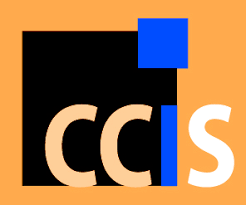Call for Papers
The way services and information are currently delivered to a multitude of end-users is changing impressively thanks to the availability of new technologies (e.g., IoT connectivity, and smart devices) and complex computational models (e.g., autonomic, adaptive computing, and artificial intelligence). Many approaches used nowadays to develop such large, complex, advanced software systems are still not able to ensure the correctness and dependability of the delivered products. Nevertheless, unreliable or unpredictable behavior, such as threats to confidentiality and even financial or health danger, cannot be tolerated as society increasingly depends on them.
Advanced computing systems require sensible architectural design that often leverages the integration of heterogeneous description languages, architectural patterns, and verification techniques. We believe that formal methods can play a significant role since they allow high precision to be achieved in both modeling, reasoning, validating, and verifying various aspects of software systems.
The main objective of the workshop is to foster the integration between the formal methods and the software architecture communities, to foster cooperation between them. We encourage researchers and practitioners to share novel ideas, methods, techniques, and tools, that seek significant achievements in improving the quality of software systems.
Topics of interest include, but are not limited to:
- formal approaches to architecture design, validation and verification;
- formal/semi-formal architecture description languages and meta-models;
- tools for verification and validation;
- application of formal methods to specific domains, such as reconfigurable, autonomous, cyber-physical, robotic, intelligent, and IoT systems;
- verification of AI systems, and AI approaches to verification;
- architecture-centric model-driven engineering approaches;
- architectural patterns, styles and tactics;
- scalable formal methods in ultra-large scale systems, long-lived and emerging systems of systems;
- formal approaches to performance analysis;
- integration of formal methods in agile software development practices;
- case studies developed and/or analyzed by using formal approaches;
- experience reports on the application of formal methods to design and analysis of real-world systems.
Workshop papers must be written in English and prepared following the Springer Communications in Computer and Information Science (CCIS) Guidelines (https://www.springer.com/series/7899). Submissions must be uploaded in PDF format through the workshop submission website hosted by EasyChair.
We solicit the following contribution types:
- Full papers (between 12 & 14 pages, Springer CCIS format): original research contributions, case studies, or report on work or experiences in industry;
- Short papers (between 6 & 8 pages, Springer CCIS format): work-in-progress, new and disruptive ideas, techniques and/or tools (or extensions) not fully validated yet.
For each accepted paper, at least one of the authors is expected to be present at the workshop and present the paper. All accepted papers will be published in the ECSA 2020 Companion Proceedings by Springer CCIS volume.


- Paper submission:
June 24, 2020June 29, 2020 (extended) - Author notification: July 16, 2020
- Camera-ready version: July 20, 2020
- Workshop date: September 14 & 15, 2020